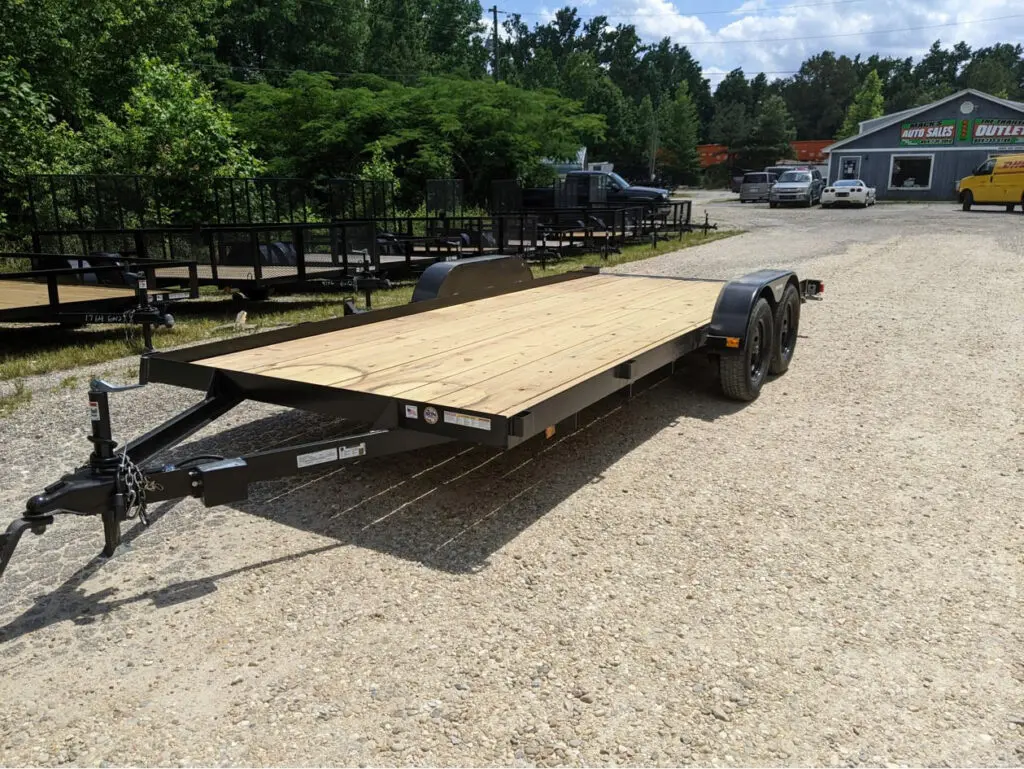How to Keep Your Trailer in Top Condition
How to Keep Your Trailer in Top Condition
Blog Article

Maintaining your trailer is essential for smooth rides, safe travels, and extending its lifespan. Whether you're hauling equipment, moving vehicles, or just taking a few family items on a trip, your trailer needs regular care. By sticking to a few maintenance basics, you can avoid unexpected repairs, keep things running safely, and protect your investment.
Here are some easy yet crucial tips to keep your trailer in top shape. For more complex issues, don't hesitate to seek out professional trailer repair services in Virginia.
- Inspect the Tires Regularly
Tires are the backbone of a safe towing experience. It's important to check them regularly, even if you're not towing every day. Look for signs of wear, cracking, or punctures. Trailer tires don't usually wear down in the same way as vehicle tires since trailers may sit unused for longer periods. Underinflated tires can lead to blowouts, poor handling, or even serious accidents.
- Check tire pressure before every trip, using the manufacturer's recommended PSI (usually on the tire sidewall).
- Look for uneven wear or cracks, which might suggest alignment issues or dry rot.
- Rotate your trailer tires every 3,000-5,000 miles, depending on how frequently you're using it.
- Keep the Bearings Lubricated
Bearing maintenance is key to preventing major trailer issues. Bearings allow the wheels to spin smoothly, but they can dry out or wear over time. If you hear squeaking or grinding, it may be time to repack the bearings.
- Clean and grease the bearings every 6,000 miles or at least once a year.
- Use high-quality bearing grease to ensure lasting protection.
- Don't ignore any sounds like grinding—these can be signs the bearings need immediate attention.
- Check and Maintain the Brakes
A good set of brakes is essential for safety when towing. Trailer brakes wear out regularly and can be especially stressed on long trips or steep grades. Be sure to check the brake pads and fluid levels regularly.
- Inspect brake pads for wear and replace them as needed.
- If your trailer uses electric brakes, check the wiring and ensure connections are secure.
- Refill brake fluid as necessary and replace it every two years to prevent rust and corrosion in the brake lines.
- Test the Lights and Wiring
Lights are a critical component of trailer safety, helping other drivers see your trailer and understand your intentions on the road. Test your trailer's lights every time before hitting the road, as they can often fail without warning.
- Check brake lights, turn signals, and running lights for proper function.
- Inspect wiring and connections for any signs of wear, corrosion, or breaks.
- Use a multimeter to check electrical connections if you're experiencing any lighting issues.
- Keep the Hitch and Coupler Clean and Lubricated
The hitch and coupler connect your trailer to your vehicle, so they need to be in top condition for safe towing. Rust, debris, or grime can weaken these components and increase the risk of separation on the road.
- Clean and grease the hitch and coupler regularly, especially before longer trips.
- Make sure the coupler fits snugly onto your vehicle's hitch ball.
- Replace the hitch or coupler if you see signs of excessive wear, cracking, or rust.
- Check and Repair the Frame and Undercarriage
Trailers are often exposed to dirt, water, and salt from the road, which can lead to rust and weakening of the frame. Regularly inspecting the undercarriage can prevent rust from spreading and causing major structural issues.
- Clean the undercarriage with a hose to remove salt and grime.
- Use a rust inhibitor to protect vulnerable areas.
- Check for cracks, dents, or loose bolts on the frame.
- Wash and Wax the Exterior
While it may seem cosmetic, washing and waxing your trailer's exterior can go a long way in protecting it from weather damage. Dirt, tree sap, and road grime can accumulate and wear down paint, leading to rust or even damaging fiberglass panels.
- Wash your trailer after any trips, especially if exposed to salt or mud.
- Apply wax or a sealant to the exterior every few months.
- Consider adding UV-protective sprays to maintain the color and shine of your trailer.
- Winterize Your Trailer
If you're not using your trailer over the winter, winterizing it can prevent many issues. Cold temperatures, snow, and ice can cause freezing and rusting.
- Drain any water tanks to prevent freezing.
- Disconnect and store batteries in a warmer location.
- Use a protective cover to shield your trailer from snow and ice.
- Schedule Regular Professional Inspections
While DIY maintenance is helpful, it's wise to have your trailer professionally inspected at least once a year. Experts can catch issues you might miss and ensure your trailer is road-ready.
- Find a reputable trailer repairs service in Virginia to handle in-depth inspections.
- Ask them to check the entire trailer, from frame to wiring, to ensure everything's in working order.
Final Thoughts
Routine maintenance is essential to keeping your trailer in top condition, and a little care goes a long way. By following these basic steps, you'll ensure your trailer is safe, reliable, and ready for any adventure. Report this page